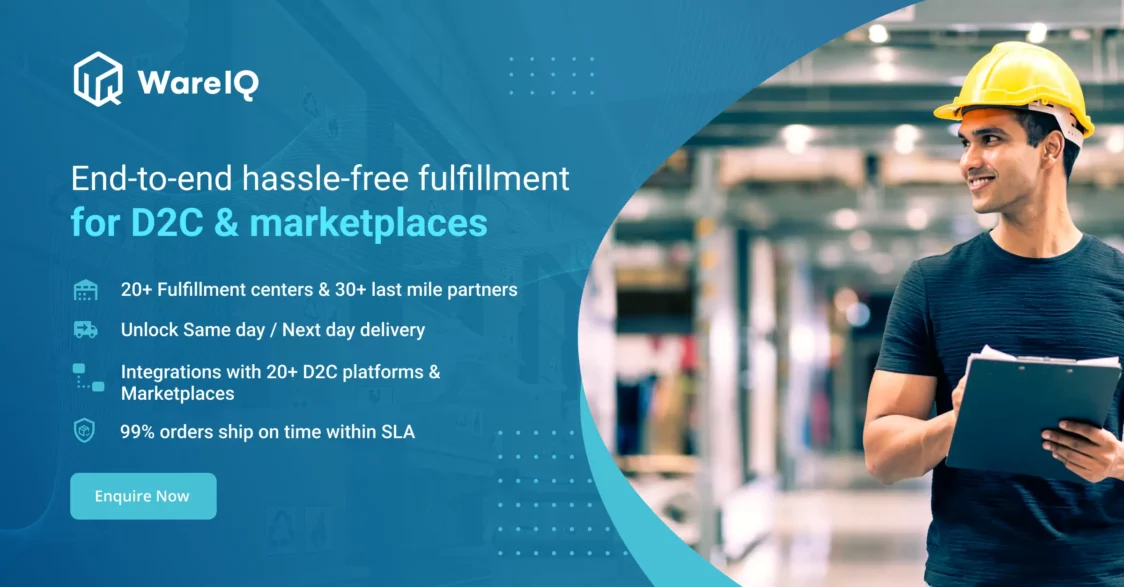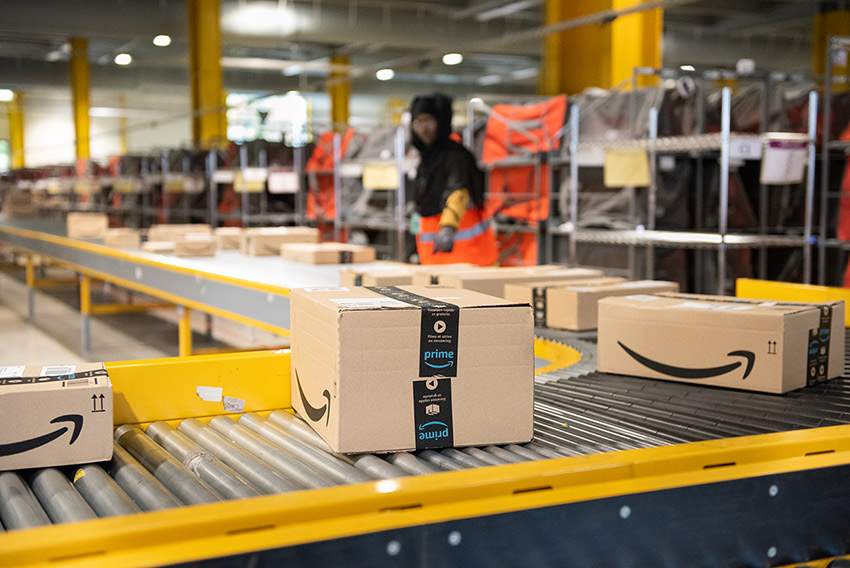Is FBA Profitable? A Detailed Analysis Of the Pros and Cons of Amazon FBA in 2025

Amazon is one of the largest eCommerce companies in the world. Having been initially founded during the expansive growth of the internet in the early 90s, the company has since blossomed into the international behemoth we have come to associate with. Having almost perfected its sales policies, marketing efforts and product listing procedures, the company set its sights on providing its own professional order fulfillment services, which came to be known as FBA, abbreviated as Fulfillment by Amazon.
FBA inspires conflicting opinions among eCommerce sellers. Some appreciate its ease of use, taking on important fulfillment-related tasks and providing multiple services and facilities. Conversely, some also find it expensive to use and cumbersome to abide by the strict rules and regulations that are imposed on every product and seller. In recent years, with the onset of multiple 3PL fulfillment companies that provide all the capabilities and technological features that FBA provides, there is a serious question mark surrounding whether retailers should opt for FBA or an external fulfillment company.
In this blog, we will provide answers to the question – is FBA profitable? – and also provide statistics to back up our findings.
- What is Amazon FBA?
- Is FBA Profitable? A Statistical Summary
- Is FBA Profitable? 5 Simple Ways to Ensure Success in 2025
- 5 Drawbacks of FBA To Assess the Question “Is FBA Profitable?”
- Is FBA Profitable? 5 Benefits of Using Amazon FBA in 2025
- How can WareIQ's Seller Flex Services Help sellers succeed?
- Conclusion: Why WareIQ is the Best Alternative to FBA in 2025 if FBA is not Profitable for Your Business?
- Is FBA Profitable?: FAQs
What is Amazon FBA?
FBA, which stands for Fulfillment by Amazon, is Amazon’s first-party fulfillment service that oversees the fulfillment of every order for all retailers that have subscribed to it. FBA began offering its services in 2006 and provides multiple fulfillment and distribution-related services, such as product storage, inventory management, shipping, last-mile delivery, and more. FBA also has its own set of practices in regard to how they store products.
For instance, they bundle together all products that fall into a similar category and price point. Additionally, retailers lack flexibility as to how their products are packaged, stored, and dispersed. Amazon FBA also subjects various preparatory guidelines as to how products should be packaged and readied for dispatch. If any of these guidelines are not followed, the respective items will instantly become ineligible for delivery. If the offenses are repeated multiple times, retailers can have fines and other penalties imposed on them, making it a slightly risky option for companies with few resources and small teams.
WareIQ, an eCommerce fulfillment company, empowers online brands with a superior-tech platform to compete with Amazon like service levels by bringing their average delivery timelines from 5-10 days to 1-2 days.
Is FBA Profitable? A Statistical Summary
- An estimated 73% of Amazon retailers across the world use FBA to fulfill their orders.
- Amazon Prime members spent roughly $1,300 compared to just $700 dollars by Prime users, indicating that FBA increases the visibility of sellers by showcasing Prime badges on their listings.
- In India, the number of sellers using FBA increased from just 23% in 2017 to 47% in 2022.
- In most major countries, the amount of Amazon sellers that use Prime is steadily growing annually.
- There are currently more than 200 million Prime members across the world, so if you opt for Amazon FBA, your chances of generating sales from them will be higher.
Is FBA Profitable? 5 Simple Ways to Ensure Success in 2025
Start Out Small
The most successful way to be profitable by using Amazon FBA is to start out with small quantities of each SKU. This will allow you to test the waters and determine how much to order and store of each item. Some products may be more expensive but will be more slow-moving, requiring less of them to be ordered in bulk. Similarly, cheaper, more popular items will get sold faster, so they will require more frequent replenishment.
Use Relevant Keywords
Keywords are an important part of modern internet communication. It allows search engines to display the most relevant results based on your search query and is utilised by virtually all major websites and selling platforms. By using the appropriate keywords for each product, you can ensure that they rank higher than your competitors if a customer searches for that specific term or anything related to it.
Prepare Your Products
As mentioned previously, Amazon FBA has extremely strict and rigid protocols regarding the guidelines that products need to follow to successfully take advantage of FBA’s services. Failure to comply with these standards can result in a lot of inconvenience and even monetary penalties. Thus, it is important to go through the regulations in detail and ensure that every product meets them down to the most minute detail.
Highlight Your Flagship Products
Your flagship products are your company’s pride and joy. If they are targeted and promoted properly, they will be the number one earner for your business. Therefore, you should ensure that these crowned items are always in stock. You can also create additional space for them by removing slow-moving products from your inventory. You can also highlight these products on your company’s Amazon page and mention them on other products’ listing pages for increased visibility.
Take Advantage of Amazon PPC
Amazon PPC stands for Pay-Per-Click and is Amazon’s advertisement program. If retailers choose to opt for PPC, they will be able to run sponsored ad campaigns that will highlight any item that they choose. It is an invaluable tool to help your products stand out and gain additional visibility, especially in the hyper-competitive environment known as Amazon. Payments are imposed based on clicks rather than impressions, enabling you to win big if you have set up the ad just right.
5 Drawbacks of FBA To Assess the Question “Is FBA Profitable?”
Heightened Fulfillment Expenditures
Since Amazon FBA takes care of every fulfillment procedure, you will have to pay for the privilege. This includes tasks such as order processing, picking, packaging, dispatch, shipping and last-mile delivery. All these procedures together can add up, especially when Amazon imposes its own premiums on each one. Thus, for retailers on a tight budget, Amazon FBA is probably not the right option.
Increased Storage Costs
Inventory storage is a must for every eCommerce seller, as many companies do not have their own physical stores or offices where they can store their products. Instead, most companies rely solely on warehouses and fulfillment centers, which are provided by Amazon FBA. However, storage costs are some of the most expensive in the industry and once you opt for a certain amount of storage, you cannot instantly upgrade or downgrade your plan if you need to, adding to the increased costs.
Presence of Supplementary Fees
FBA is notorious for having multiple hidden costs that only plague retailers once they have actually subscribed to the service. In addition to conventional fees for fulfillment and storage, there are multiple other fees that are suddenly imposed without the discretion of retailers and if they want to continue to use Amazon FBA services, they have no other choice but to pay them. Some of these fees include referral fees, closing fees, label printing fees and more. Additionally, these fees can increase or decrease based on a variety of external factors not within the control of either sellers or Amazon.
Loss of Input
Due to Amazon aiming to provide a highly standardised experience for every FBA service, retailers lose most of their ability to provide their own inputs as to the way certain services and procedures are conducted. Additionally, the disputed cases of damaged or returned items, Amazon usually sides with its customers rather than its sellers, which can cause a lot of damage to smaller firms relying on thin profit margins.
Reduced Flexibility
Similar to the above point, sellers cannot implement any changes they desire. Everything, down to the packaging and unboxing experience a customer will have, is centred around Amazon itself and not the company the item was purchased from. Additionally, there are very few customization options and aspects that are within the seller’s control, so it can be a pretty unyielding experience.
Is FBA Profitable? 5 Benefits of Using Amazon FBA in 2025
Increased Visibility
Because FBA indicates fulfillment speeds by providing Prime badges on your listing pages, there will be increased trust and visibility amongst potential customers. Customers are often sceptical to purchase from retailers that don’t provide fast shipping or other features. Having the Prime badge next to all your product listings will instantly inspire them to purchase from your store more than if you didn’t have them, thus generating more sales.
Ultra-Fast Delivery
FBA set the now widely-used industry standard when it revolutionised order fulfillment with same-day and next-day delivery. It was so popular that in recent times, customers view it as a necessity rather than an added convenience. Through Amazon FBA, you can provide seamless same-day and next-day delivery options for every order, with the added bonus of having Prime badges displayed next to all product listings.
Prime Label
We have already spoken about the benefits of having a Prime badge next to your product listings but they cannot be stated enough. They act as an instant verification that orders will be handled and shipped within a certain time directly by Amazon. It is akin to having your order with you as soon as you purchase it because you know that it will be dispatched and shipped instantly, and given much higher priority compared to regular orders.
Inventory Storage
Amazon stores all of its FBA inventory in its own, officially run warehouses. Customers can be assured that all procedures relating to order fulfillment are handled directly by Amazon and not by any external service. Additionally, the warehouses are highly stacked with the latest technology and automation. Amazon handles processes like processing, picking, packing, dispatching, and shipping of all FBA orders.
Customer Service
Being one of the largest eCommerce firms has multiple perks for sellers that use Amazon FBA and customer service is one of them. Amazon offers some of the best customer care facilities in the industry, with highly trained personnel offering quick resolutions at every hour of the day. This will instantly make sure that your customers always have the best assistance when it comes to any query or issue.
How can WareIQ’s Seller Flex Services Help sellers succeed?
Sellers are constantly seeking ways to optimise their operations and enhance customer satisfaction. WareIQ’s Seller Flex services provide a robust solution for sellers leveraging the benefits of Amazon’s Seller Flex program. Here’s how partnering with WareIQ can help sellers thrive.
Access a Pan-India Fulfillment Network
WareIQ boasts a comprehensive network of Seller Flex-compliant fulfillment centres strategically located across India. This extensive reach allows sellers to:
- Strategically Place Inventory: Sellers can significantly reduce shipping times and enhance delivery speed by positioning inventory closer to end consumers.
- Optimise Fulfillment Costs: With regional fulfillment, sellers can minimise shipping costs, making it easier to offer competitive pricing.
Maintain Control Over Inventory and Enjoy Prime Benefits
One of the key advantages of WareIQ’s Seller Flex services is that sellers can maintain control over their inventory and fulfillment processes while still enjoying the significant benefits of the Amazon Prime badge. This unique feature allows sellers to:
- Retain Flexibility: Sellers can manage their stock levels and fulfillment strategies according to their business needs, ensuring they can adapt quickly to changing market demands.
- Prime Badge Benefits: Despite managing their own fulfillment, sellers still benefit from the Prime badge, which enhances product visibility on Amazon. This badge signifies fast and reliable shipping and attracts a more extensive customer base, as Prime members prioritise Prime-eligible products.
Ensure Accurate Inventory Management
Effective inventory management is crucial for any seller, and WareIQ provides advanced solutions to ensure accuracy:
- Smart Inventory Management System: WareIQ employs a sophisticated inventory management system that includes daily inventory counts using scan-based devices. This ensures that sellers have real-time visibility into their stock levels.
- Thorough Audits: Regular audits help prevent missing inventory items and maintain necessary documentation for a seamless transfer of goods.
Streamline Returns and Claims Management
Returns can be a significant pain point for sellers, but WareIQ simplifies this process:
- In-House Quality Control (QC) App: WareIQ utilises an in-house QC app to create photo and video proofs of the condition of returned items. This documentation is stored against the order ID/AWB on WareIQ’s smart fulfillment platform.
- Simplified Claims Management: With easy access to media proofs, sellers can streamline the claims filing process, reducing the time and effort required to manage returns.
Benefit from Expedited Onboarding
Getting started with Seller Flex can be a daunting task, but WareIQ makes it easier:
- Accelerated Onboarding Process: WareIQ’s strategic partnership with Amazon allows a faster seller onboarding process.
- Professional Support: The WareIQ team assists with all essential paperwork, ensuring a trouble-free transfer and a smooth start to the Seller Flex experience.
By leveraging WareIQ’s Seller Flex services, sellers can easily navigate the program’s complexities. They can maintain Prime eligibility, optimise their fulfillment strategy, and focus on growing their business while WareIQ handles the logistics. Embrace the benefits of Seller Flex with WareIQ and take your e-commerce operations to the next level.
Conclusion: Why WareIQ is the Best Alternative to FBA in 2025 if FBA is not Profitable for Your Business?
Amazon FBA is revered amongst many Amazon sellers that insist it has contributed to the success and efficiency of their companies but is FBA profitable? The answer can vary from seller to seller based on the industry they operate in, the types of products they sell, their business model, manufacturing costs, proximity to their customers and much more. However, Amazon FBA is widely heralded as one of the more expensive options in the fulfillment industry.
This, coupled with its lack of flexibility, rigid regulations and harsh sentences for retailers that make minor errors make looking at an external fulfillment option worthwhile. They provide all the same features, more value-added services, and offer cost-effective pricing. If you need assistance with fulfilling your online orders, WareIQ can be the right solution for you. Also, you can read about how to create an effective amazon pricing strategy here.
WareIQ is an eCommerce fulfillment company that was founded in 2019 and is currently based in Bangalore, Karnataka. The company provides a variety of eCommerce services, including product storage, inventory management, marketplace integrations, an in-house WMS, shipping aggregation, last-mile delivery and much more. A few features we provide that make us one of the best options to fulfill online orders are listed below:
- An India-encompassing on-demand fulfillment center and dark store network
- A custom WMS
- Integrations with 20-plus online marketplaces, including Amazon
- Ultra-fast delivery
- A partnership with multiple shipping carriers
- FBA preparation services
- Higher inventory turnover as a common inventory pool for sales through multiple channels
- Dedicated support to centrally manage returns claim management across marketplaces
- Availability of inventory planning & optimization for higher product availability, and lower inventory holding cost
- Ready access to marketplace benefits such as Prime tag
- Pick and pack services
- Custom apps
- Access to Amazon’s first-party 24/7 customer service
- Returns management
Suggested read: Amazon FBA Capacity Limits













